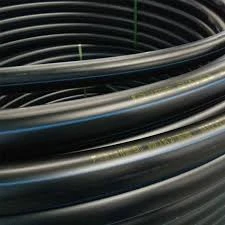Dec . 04, 2024 10:55 Back to list
hdpe board
Understanding HDPE Boards A Versatile Material for Various Applications
High-Density Polyethylene (HDPE) boards have gained significant popularity in recent years due to their unique properties and versatile applications. This robust plastic material, derived from petroleum, is well-known for its outstanding strength-to-density ratio and resistance to a variety of environmental factors. In this article, we will explore the characteristics of HDPE boards, their numerous applications, and the benefits they offer.
What is HDPE?
HDPE stands for High-Density Polyethylene, which is a thermoplastic polymer. It is produced through the polymerization of ethylene, a gaseous hydrocarbon. HDPE is recognized for its high tensile strength and durability, making it suitable for various demanding applications. The material is available in various forms, including sheets, rods, and tubes, with HDPE boards being one of the most commonly used forms.
Key Characteristics of HDPE Boards
1. Durability HDPE boards are known for their exceptional durability. They are resistant to impact, weathering, and chemical abrasion. This makes them ideal for outdoor applications where exposure to sunlight and moisture can deteriorate other materials.
2. Lightweight Despite their strength, HDPE boards are lightweight, making them easy to handle and transport. This quality is particularly advantageous in construction and manufacturing settings, where reducing material weight can lead to lower transportation costs.
3. Chemical Resistance HDPE exhibits excellent resistance to a broad range of chemicals, including acids, bases, and solvents. This property makes HDPE boards suitable for use in laboratories, industrial settings, and other environments where chemical exposure is a concern.
4. Low Moisture Absorption HDPE boards have minimal water absorption, which helps prevent mold and mildew growth. This characteristic makes them ideal for environments prone to humidity or spills.
5. Recyclability As an environmentally conscious material, HDPE is fully recyclable. At the end of its life cycle, HDPE boards can be repurposed, reducing waste and minimizing environmental impact.
hdpe board

Applications of HDPE Boards
HDPE boards are employed across various industries due to their versatility. Some prominent applications include
1. Construction HDPE boards are widely used in construction for wall panels, sheathing, and insulation. Their durability and resistance to water make them suitable for roofing and outdoor applications, such as building drainage systems and retaining walls.
2. Signage The vibrant colors and printability of HDPE boards make them an ideal choice for signage. They are commonly used to create durable and weather-resistant signs for businesses, parks, and public spaces.
3. Food Industry Due to their non-porous nature and resistance to bacteria, HDPE boards are often used for cutting boards, food processing tables, and packaging materials in the food industry. They do not harbor harmful microorganisms, ensuring food safety.
4. Marine Applications HDPE boards are resistant to water and salt, making them an excellent choice for marine applications. They are used in dock fenders, boat components, and even in the construction of kayaks and canoes.
5. Agriculture In the agricultural sector, HDPE boards are used for constructing greenhouses, irrigation systems, and storage containers. Their resistance to UV rays and chemicals enhances their utility in farming environments.
Conclusion
In summary, HDPE boards are a remarkable material that offers a perfect blend of strength, durability, and versatility. Their wide range of applications across various industries demonstrates their value as a reliable solution for countless challenges. Moreover, their recyclability aligns with the growing focus on sustainability, making them an environmentally friendly choice. Whether in construction, signage, food safety, or marine applications, HDPE boards are poised to play a crucial role in the future development of these industries. As technology advances, we can expect even more innovative uses for this enduring material, further solidifying its importance in modern applications.
-
High Transparency PVC Clear Sheet Super Transparency PVC Sheets & HDPE Cutting Board Supplier
NewsJul.04,2025
-
High-Quality PVC-M Pipe Supplier Trusted PVC Pipe Company & 75mm PVC Connection Pipe Solutions
NewsJul.04,2025
-
PVC Transparent Sheet Roll - Durable & Flexible PVC Plastic Sheet Roll for Industrial & Home Use
NewsJun.24,2025
-
High-Quality PVC PPR Pipes and Fittings Durable ERA PPR Solutions
NewsJun.10,2025
-
High-Quality Large HDPE Sheets & Large Diameter PVC Pipe Durable Large PVC Pipe Supplier
NewsJun.10,2025
-
High Density Polyethylene Cutting Board - Durable & Food Safe
NewsJun.09,2025

